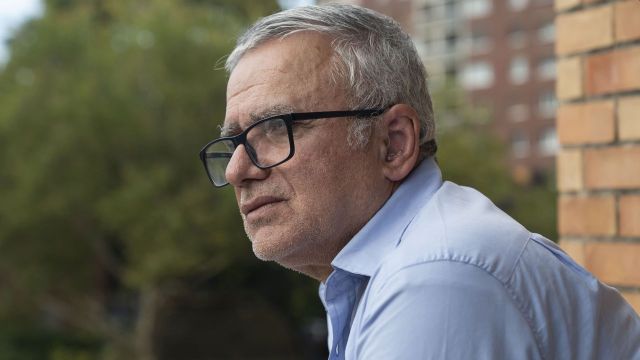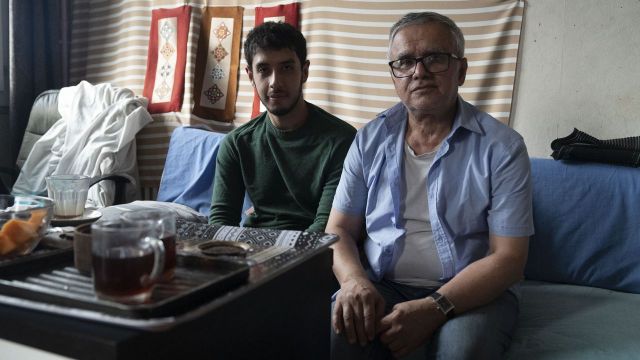By Eric Vandenbroeck and co-workers
What Narges Mohammadi’s Nobel Means For
Iran
Iran, also known as
Persia and officially as the Islamic Republic of Iran,[c] is a country in West
Asia. It is bordered by Iraq and Turkey to the west, Azerbaijan and Armenia to
the northwest, the Caspian Sea and Turkmenistan to the north, Afghanistan and Pakistan
to the east, and the Gulf of Oman and the Persian Gulf to the south. It covers
an area of 1.64 million square kilometers (0.63 million square miles), making
it the 17th-largest country. With an estimated population of 86.8 million, Iran
is the 17th-most populous country and the second-largest nation in the Middle
East. Its capital and largest
city is Tehran.
Sayyid Jamâl al-Din al-Afghani
was probably of Iranian origin and undoubtedly influenced by the Persian
intellectual climate in which, unlike the Sunni countries, Sufism and medieval
Arabic falsafa (Greek-inspired philosophy) continued
to play a role was a charismatic, complex figure of intrigue who practiced taqfyya or precautionary dissimulation, sometimes speaking
as a Westernizing promoter of science and reason, sometimes as a revivalist of
Islam.
This ambiguity is
particularly evident in juxtaposing his famously religious "Refutation of
the Materialists" and his secular "Response to Renan". We can
say that al-Afghani began making Islam the core idea of a modern political and
anti-imperial movement, an alternative to secularism, nationalism, and
communism. His most prominent disciple, Muhammad `Abduh (1849-1905), crafted a
more straightforward message serving the same aim. 'Abduh's Theology of Unity
is founded on the tawhid, the unity of God, from which he derives a remarkable
set of conclusions, most prominently that Islam is utterly compatible with
modern science and technology. 'Abduh insists that reason is the heart of
Islam. He argued not only that the Qur'an permits minority religious freedom
but that the sword never spreads Islam. Islamic expansion is achieved only by
example.
Narges Mohammadi
Sixteen-year-old Ali
vividly remembers the last time he saw his mother at home. She made him and his
twin sister, Kiana, eggs for breakfast, told them to study hard, said goodbye,
and sent them to school. When they returned, she was gone.They
were eight.
Their mother is Narges
Mohammadi, a woman whose name has become synonymous with the fight for human
rights in Iran – a battle that has cost this activist almost everything.
On Friday, she won the Nobel
Peace Prize for
“her fight against the oppression of women in Iran and her fight to promote
human rights and freedom for all,” the Norwegian Nobel Committee announced in
Oslo.
Mohammadi has been a
prisoner for most of the
past two decades. She has been sentenced repeatedly for being the voice of the
voiceless, for her unrelenting campaign against the death penalty and solitary
confinement – which she has endured for weeks.
Outside the prison walls, a brutal crackdown on
protest by Iranian authorities largely quelled the movement sparked by Amini’s
death and the morality police resumed their
headscarf patrols in
July. Iranian activists this week accused them of assaulting a
teenage girl for not
wearing a headscarf in a Tehran metro station, leading to her hospitalization
with serious injuries. Iranian authorities said low blood pressure was the
cause.
Compulsory Hijab
Mohammadi knows all
too well the price of speaking publicly. In August she was sentenced to an
additional year in jail for her continued activism inside prison after she gave
a media interview and a statement about sexual assaults in jail.
She was already serving time for publishing a
book last year about
Iran’s brutal prison methods, titled “White Torture: Interviews with Iranian Women
Prisoners,” and a documentary film about prisoners in solitary confinement – a
punishment Mohammadi has endured.
She says that
security forces, prison authorities, and medical personnel assaulted political
prisoners and women held on criminal charges.
According to
Mohammadi, sexual violence against women detainees has “significantly
increased” since the protests that swept Iran last year, leading her to
describe the abuse as now “systematic.”

Narges Mohammadi with her children, Kiana and Ali.
“The victims had told
their stories in the meetings they had with the officials who came to Qarchak prison for inspection,” Mohammadi writes. “In
prison, I have heard the narratives of three protesting women who were sexually
assaulted. One of them was a well-known activist of the student movement who,
upon entering the prison, filed a complaint with the authorities and announced
that after being arrested on the street, her one hand and one leg were cuffed and
tied to the two rings on the top of the car door. And in that position, she was
sexually assaulted.”
Mohammadi says she
and another prisoner visited the prison’s “quarantine” area under the pretext
of taking food to another inmate and saw the young woman with bruises on her
stomach, arms, legs, and thighs.
For years, Mohammadi
has been vocal about sexual violence against prisoners, breaking taboos in her conservative
country. In 2021, she hosted a discussion via the Clubhouse social media app
where women, including Mohammadi, shared their stories of assaults by
government “agents” from the 1980s to 2021. She was penalized for this,
according to Mohammadi and rights groups.
“Women who experience
sexual harassment become filled with anger, fear, and insecurity, but when
their womanhood is hidden and suppressed by ideological and religious claims,
they will not only be angry and terrified, but they will also feel deceived and
manipulated by the government, which is even more distressing,” she writes.
Such sexual abuse “leaves such deep scars on their souls and minds that it is
difficult to recover from, and perhaps they may never fully recover,” she
added.
‘Endure All The Hardships’
Mohammadi has been
banned from speaking directly with her husband and children for 18 months for
refusing to be silenced behind bars.
“When your wife and
the closest person to you is in prison, every single day you wake up worried that
you might hear bad news,” her husband, Taghi Rahmani, told CNN in a recent
interview in France, where he has lived in exile with their children since
shortly after Mohammadi was imprisoned in 2015.
Rahmani and human
rights groups have raised concerns about Mohammadi’s health and access to
medical care after she suffered a heart attack and underwent surgery last year.
He proudly shows off
the prestigious international awards he has received on her behalf. She has an
“endless energy for freedom and human rights,” he said.

Taghi Rahmani,
pictured in Paris, says he met Mohammadi when she attended his underground
contemporary history classes in 1995.
Rahmani, who was held
as a political prisoner for 14 years, met Mohammadi when she attended his
underground contemporary history classes in 1995, he says.
For the past eight
years, he has had to act as father and mother to their now teenage twins.
“Kiana always used to
say when mom is here, dad is not. It’s not good,” he said. “But when someone
chooses a path, they must endure all the hardships.”
Like his father, Ali
is resolute, saying his mother must keep going “for Iran, for our future.”
“I am proud of my
mom. she was not always with us, but whenever she was, she took good care of
us… she was a good mom and still is… I have accepted this kind of life now. Any
suffering that I have to endure does not matter.”
He said he was so
eager to discover whether his mother had won that he kept scrolling on his
phone in class without his teacher noticing.
“Precisely at 11
a.m., my heart stops because I see that my mother won,” he said. “I exploded
with joy.”
Kiana prefers not to
speak and wants her mother by her side. Her father says Kiana believes that if
you bring a child into this world, you must take responsibility and raise that
child.
The pain of
separation from her family is one Mohammadi lives with daily. It is the cost of
a sacrifice she has chosen to make for the dream of a future freedom that has
defined her life.

Ali and Taghi
Rahmani, seen in their apartment in Paris, say they are proud of Mohammadi's
activism on behalf of Iranians.
“The moment I said
goodbye to Ali and Kiana was not unlike the time I almost died in the
tree-lined yard of Evin,” she writes, not specifying when that event was. “I
picked the dandelions of Evin’s yard. I stood barefoot on the hot asphalt on
July 14,” she said, referring to the day – only weeks after that final
breakfast – on which she said goodbye to her children in prison before they
left for exile in France. “My feet were burning but my heart was on fire. I
sent the dandelions to the sky and my children’s hands, feet, and childish
faces passed my eyes and tears fell like spring rain.
“If I look at the
prison from the window of my heart, I was more of a stranger to my daughter and
son than any stranger and I missed out on the best years of my life, and what went
will never return. But I am sure a world without freedom, equality, and peace
is not worth living or watching.
“I have chosen not to see my children or even hear
their voices and be the voice of oppressed people, women and children, of my
land,” she says.
For updates click hompage here